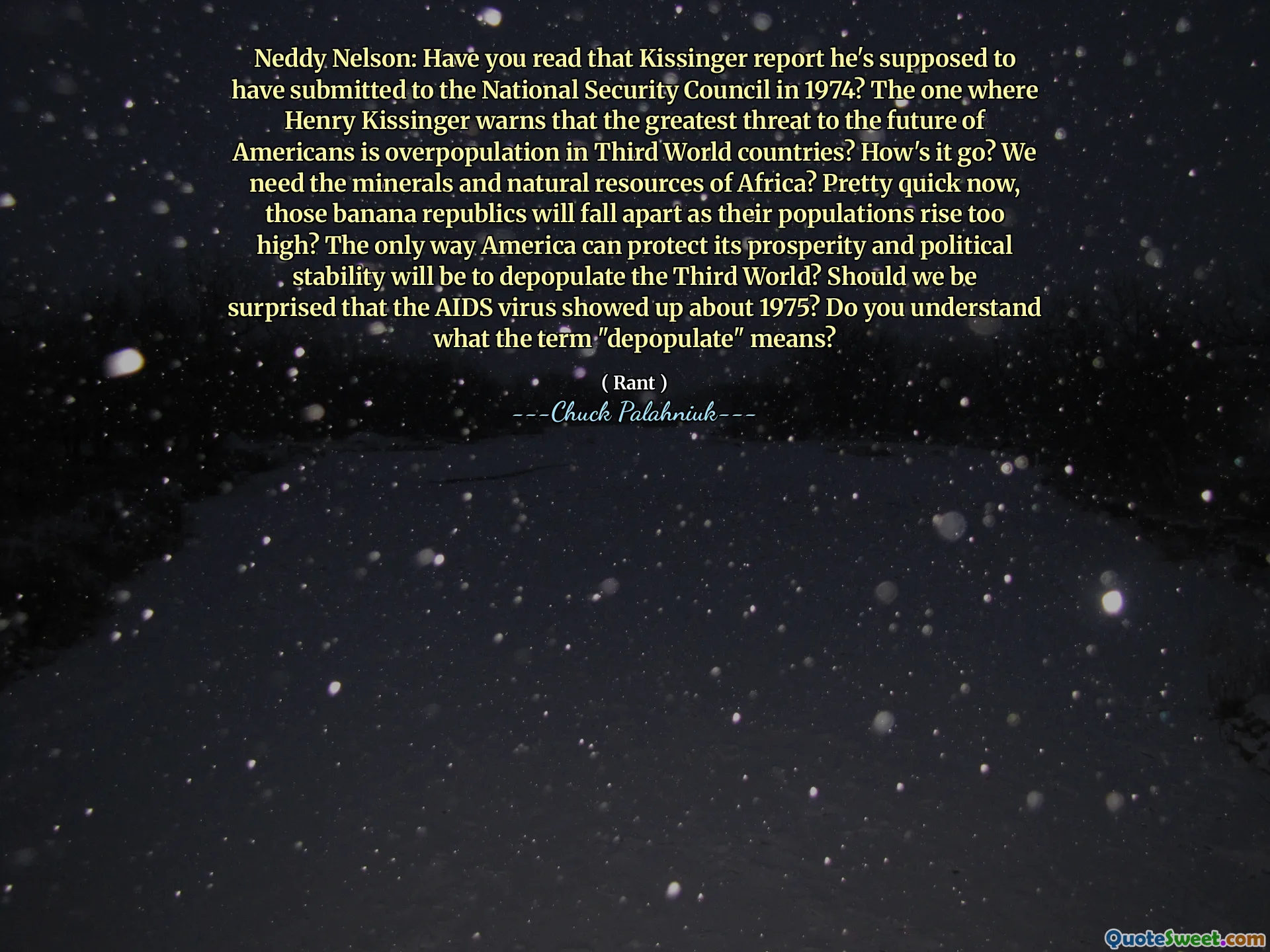
Neddy Nelson: Have you read that Kissinger report he's supposed to have submitted to the National Security Council in 1974? The one where Henry Kissinger warns that the greatest threat to the future of Americans is overpopulation in Third World countries? How's it go? We need the minerals and natural resources of Africa? Pretty quick now, those banana republics will fall apart as their populations rise too high? The only way America can protect its prosperity and political stability will be to depopulate the Third World? Should we be surprised that the AIDS virus showed up about 1975? Do you understand what the term "depopulate" means?
[Delving into this quote reveals a layered critique of conspiracy theories and government distrust. It suggests that a secretive agenda might be driving policies aimed at reducing populations in developing nations to secure resources, which reflects longstanding fears and rumors about manipulative global strategies. The mention of a Kissinger report from 1974 acts as a focal point—whether factual or speculative—to question the intentions behind international relations and demographic control. This quote challenges us to consider the implications of power, resource exploitation, and public health crises like AIDS in the context of supposed covert depopulation schemes. It underscores how misinformation and suspicion can influence perceptions of international policymakers and expose broader anxieties about sovereignty, survival, and ethical boundaries. The haunting suggestion that pandemics could be engineered as tools of population control prompts reflection on the importance of transparency and trust in governance. At the same time, it invites us to critically assess the narratives we encounter and the sources behind them. In an era where information spreads rapidly, distinguishing between fact and fiction becomes crucial—especially in matters as sensitive and impactful as global health, population strategies, and resource management. Ultimately, the quote compels us to stay vigilant about how geopolitical motives might intersect with public health and environmental issues, encouraging a balanced skepticism while demanding evidence-based discourse on these complex topics.







